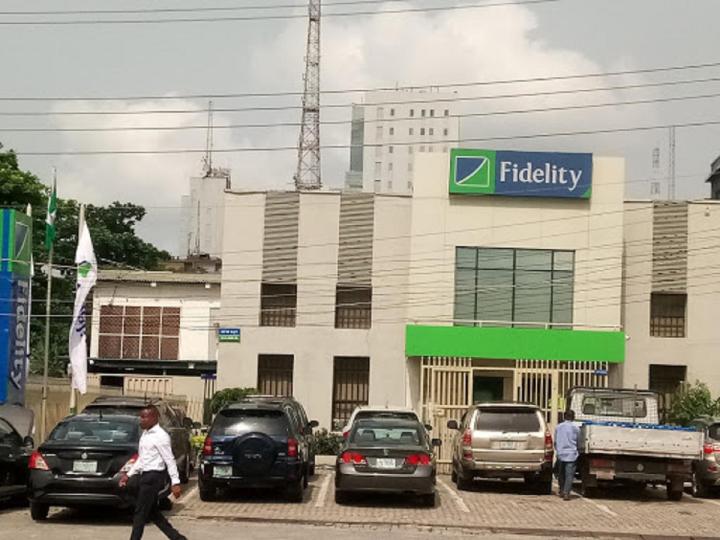The Asset Management Corporation of Nigeria (AMCON) has divested a significant portion of its equity in Fidelity Bank Plc, selling approximately 1.14 billion shares, which represents 2.29 percent of the bank’s total outstanding shares. The transaction, executed through an off-market block deal, marks a strategic move by the government-owned asset recovery agency as it continues its phased withdrawal from shareholdings acquired during past financial interventions.
The sale took place on July 18, 2025, and was facilitated by top investment firms through negotiated deals. Market observers suggest that the buyer is a private investor with interests in the financial and energy sectors, though AMCON has yet to disclose the identity officially. This block trade forms part of AMCON’s broader objective to gradually exit the banking sector by offloading its shares to institutional and strategic investors capable of adding long-term value.

Fidelity Bank, one of Nigeria’s leading commercial banks, has recently gained increased attention in capital markets following its robust capital raise earlier in the year. The bank had issued more than 21 billion new shares through a rights and public offer, raising over ₦127 billion. This capital injection enabled it to meet and exceed the new capital requirement set by the Central Bank of Nigeria (CBN) for international banking license holders. With the successful completion of its recapitalization efforts, the bank has been lauded for its prudent financial management and investor appeal.
The 2.29% divestment by AMCON did not significantly disrupt the market value of Fidelity Bank shares. On the day of the transaction, the stock traded at ₦21.10, showing only a mild decline from the previous close of ₦21.55. Analysts say the muted reaction reflects investor confidence in the bank’s fundamentals, suggesting that the large-volume sale was already anticipated or absorbed by institutional interest.
Fidelity Bank’s performance in recent quarters has supported this confidence. For the first quarter of 2025, the bank posted a profit before tax of over ₦107 billion, a dramatic year-on-year increase of nearly 168%. Gross earnings also rose by more than 60%, exceeding ₦315 billion during the same period. The bank’s strong operating income, alongside expanding digital banking services and strategic lending initiatives, has made it attractive to investors and rating agencies alike.
Financial analysts view AMCON’s exit as timely and strategic. Since its establishment, AMCON has been tasked with stabilizing Nigeria’s financial sector by purchasing non-performing loans and, in some cases, acquiring equity in troubled banks. As the economic climate improves and banks strengthen their capital positions, the agency has been gradually unwinding its positions to return those shares to the private sector.
The recent transaction in Fidelity Bank follows a pattern observed across the financial industry, where several high-volume share transfers have taken place in recent months. These off-market block deals often involve large-scale investors acquiring meaningful stakes in major financial institutions. While these transactions typically lack the volatility of open-market sales, they do signal possible future changes in governance or strategic direction, especially if the buyer seeks to become an active participant in the bank’s long-term planning.
Stakeholders are now waiting for more details about the identity and intention of the new shareholder. If the buyer is a strategic investor with interests aligned with Fidelity Bank’s growth trajectory, it could lead to new investments, technology upgrades, or market expansions. On the other hand, if the purchase was merely speculative, there may be limited short-term impact.
Regardless of the buyer’s motives, the sale reflects Fidelity Bank’s rising appeal in Nigeria’s financial ecosystem. The successful capital raise, improved earnings, and regulatory compliance have positioned it as one of the more stable and forward-looking banks in the country. AMCON’s withdrawal may further encourage private-sector investment as market confidence grows in response to the bank’s resilience and growth potential.
In broader terms, AMCON’s divestiture highlights a shift in Nigeria’s financial system, where institutions previously propped up by government support are regaining full operational independence. With its reduced stake, AMCON continues to fulfill its mandate of financial stabilization while ensuring that viable institutions transition to fully private ownership.
As Fidelity Bank prepares to release its mid-year financials and disclose its revised shareholding structure, market watchers will be keen to see how this transaction reshapes its investor base. The bank’s ability to maintain momentum, deepen its retail and SME banking segments, and sustain profitability will be critical in justifying investor interest and validating the value of its growing equity.
This development underscores not just a milestone for Fidelity Bank but also a statement of maturity for Nigeria’s banking sector, where institutions are increasingly attracting capital from domestic and international sources without direct government backing.
Support InfoStride News' Credible Journalism: Only credible journalism can guarantee a fair, accountable and transparent society, including democracy and government. It involves a lot of efforts and money. We need your support. Click here to Donate
